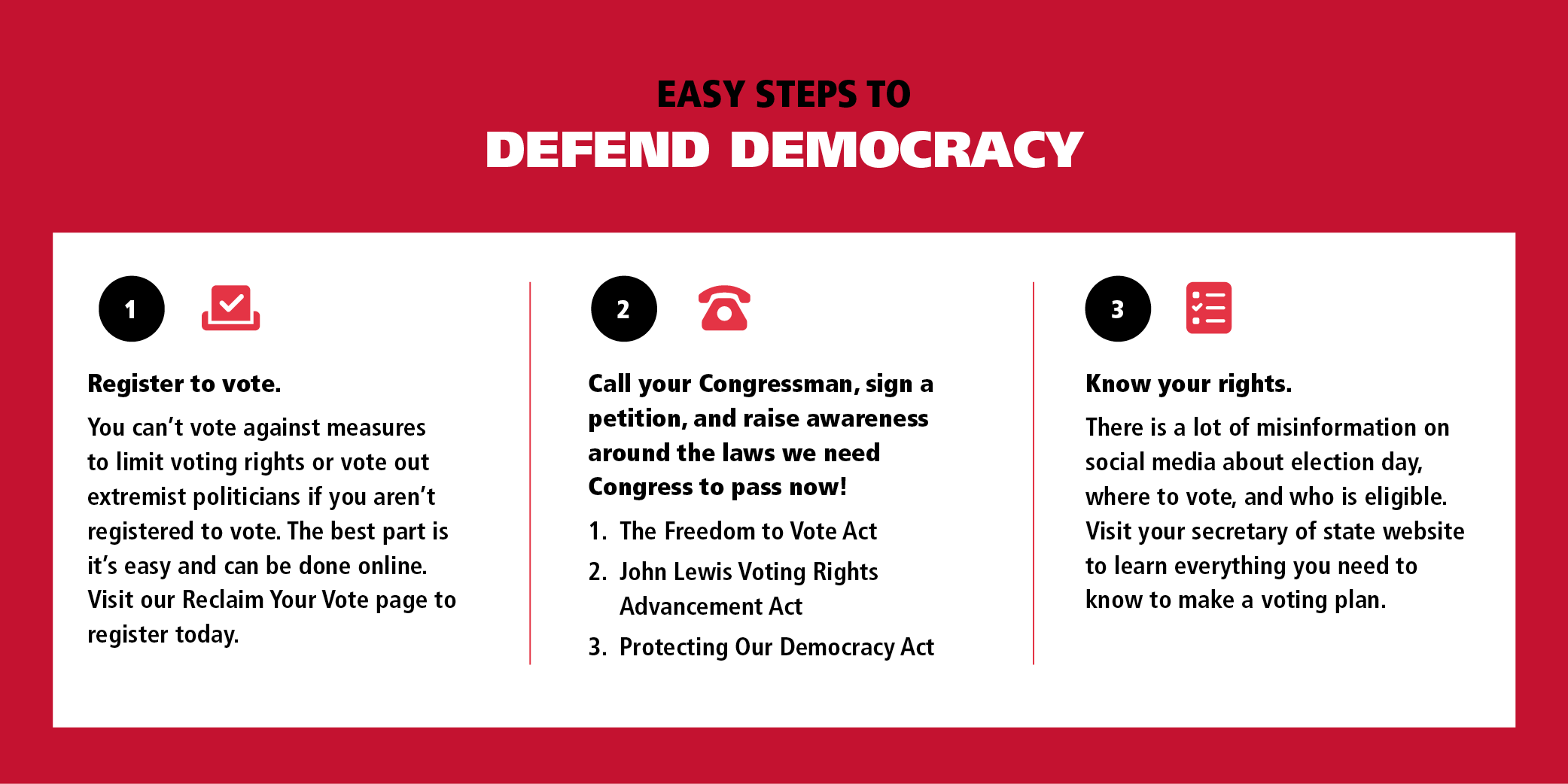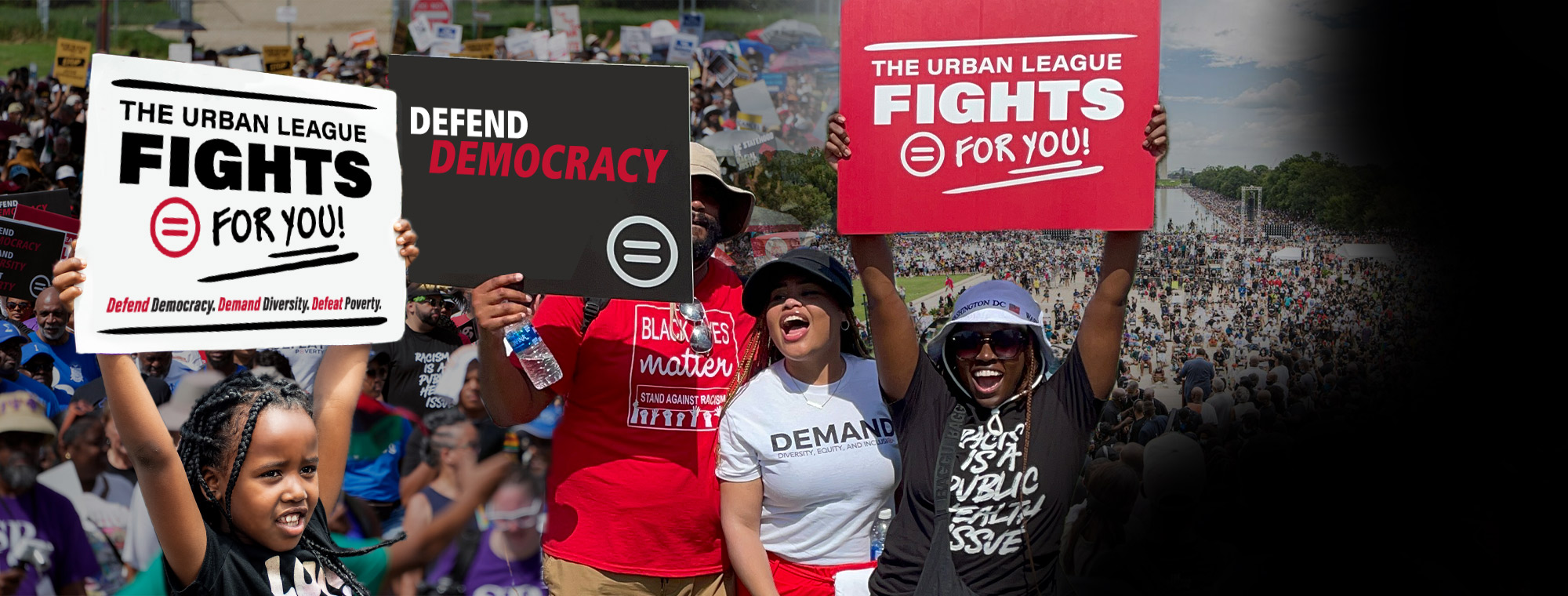Get Involved
The phrase "A Threat to Our Democracy" is thrown around often without the proper context. Our democracy is how we decide who represents us on the global stage, who protects our communities, decides how to use our tax dollars, and leads us into the future. It also allows us to express our beliefs and turn them into law at the ballot box.
When we say our democracy is under attack, what we mean is that the basic function of any democracy, the right to vote, is under attack. States across the country have introduced stricter voter ID laws, purged their voter roles, and made it harder to vote in elections.
The shameless attacks on our right to vote are coming from everywhere, including people sitting in office, from the Secretary of State to the Governor's mansion. If you want to help us fight these extremists, here are a few ways.

The Issues
We are defending our democracy against a variety of tactics to suppress the Black vote including:
Voter Suppression Tactics: Recent elections have seen various voter suppression tactics, such as the reduction of polling places in predominantly minority neighborhoods, limiting early voting hours, and purging voter rolls. These tactics make it more difficult for people of color to vote and can suppress their political participation.
Voter ID Laws: As outlined in our 2023 State of Black America Report, many states have implemented strict voter ID laws. These laws disproportionately affect Black communities because they are more likely to face barriers in obtaining the necessary identification.
Voter Intimidation: Instances of voter intimidation, particularly in communities of color, have been reported in recent elections. This can involve physical presence at polling places, harassment, or spreading false information about voting rights, discouraging people from casting their ballots.
Lack of Access to Early Voting and Mail-In Voting: In some areas, there is limited access to early voting and mail-in voting, which can disproportionately affect communities of color, especially those who face transportation challenges or have inflexible work schedules.
Underrepresentation: Communities of color are often underrepresented in elected offices, both at the local and national levels. This lack of representation can lead to policies that do not adequately address the needs and concerns of these communities.
Gerrymandering: Gerrymandering is the practice of redrawing electoral district boundaries to benefit a particular political party or group. This can dilute the voting power of communities of color by splitting them across multiple districts, making it harder for them to elect representatives who truly represent their interests.
Prison Gerrymandering: In some states, incarcerated individuals are counted as residents of the prison location rather than their home communities. Since the prison population disproportionately consists of people of color, this inflates the political power of predominantly white rural areas where many prisons are located while diminishing the representation of urban communities of color.


